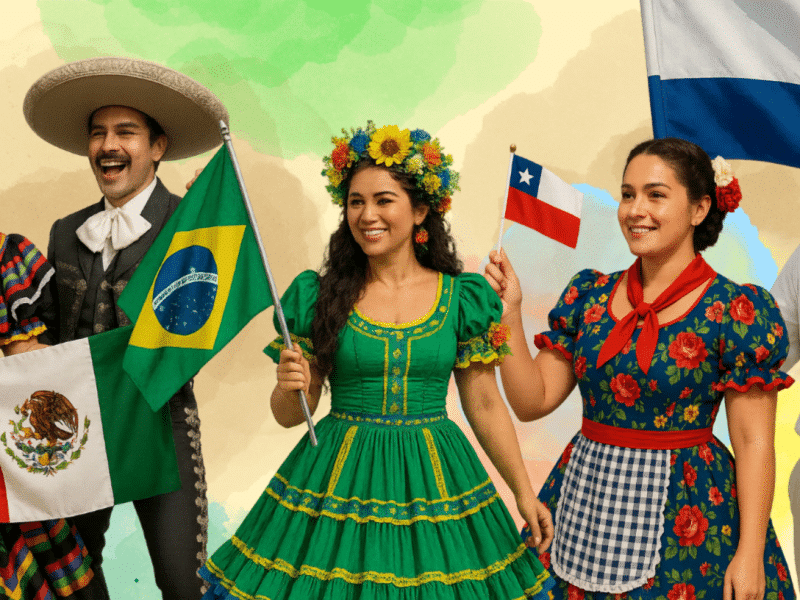You May Not Know the Term, but Latinas Know the Responsibilities: Kinkeeping
From juggling family dinners to coordinating with relatives, the responsibility of bringing everyone together is a responsibility many Latinas know well. There’s a name for this invisible family and relationship maintenance work.

Kinkeeping refers to all activities related to maintaining family relationships, passing down traditions, and remembering the family’s heritage. This includes things like cooking, sharing food recipes, teaching stories, crafts and duties, contacting family members, and even organizing events to keep in touch with relatives.
During the holidays, that can mean planning get-togethers, cooking dinners, and organizing gift-giving or card-giving. In “Women’s Voices, Feminist Visions,” Susan M. Shaw and Janet Lee state that the usually related tasks to kinkeeping “are time-consuming and involve emotional work that is not easily quantified,” which makes it even harder to recognize as legitimate labor that causes exhaustion just as any other labor causes, and that is also distinct from more commonly known house work.
Grandmothers, mothers, and daughters are constantly reminded of their place in the family and the responsibility to maintain and support relationships. Kinkeeping is just another form of care that falls on their shoulders. The general care work represents 12.5 billion hours of unpaid care work every day. When valued at minimum wage, this would represent a contribution to the global economy of at least $10.8 trillion a year, more than three times the size of the global tech industry.
Since the emotional labor of maintaining relationships with the family usually relies on women, this adds another layer of pressure to be the ones who are there for other family members. They’re also responsible for passing down cherished family and cultural traditions that keep heritage going.
So how does Kinkeeping affect Latina Women?
Latina culture relies heavily on maintaining family ties. And oftentimes, women are taught to prioritize household tasks like cooking and cleaning for the benefit of maintaining the family. This is ingrained in mothers and what they should teach their daughters. They are in charge every time the family needs to gather for anything.
In addition, we are also now seeing more financial expectations placed on Latina women to take care of their families, adding more stress to their lives through additional worrying and even more demands of their time. COVID-19 made these burdens Latina moms face to be there for their families crystal clear.
If mothers, daughters, and abuelas don’t organize to keep families together, a likely outcome is that families begin to drift apart. Anecdotally, we hear of situations like this when family matriarchs pass away. The family gathers less and only gathers when tías celebrate birthdays or when the other women make it a point to celebrate something. The tíos and other men never seem to think about seeing each other and getting the family together.
The problem isn’t so much about having to maintain family relationships, but more so about the fact that women are usually the only ones doing it and are expected to do so. In “A Binding Tie: Supportive Communication of Family Kinkeepers,” Margaret S. Leach and Dawn O. Braithwaite report that 72% of the kinkeepers in families are women, confirming that is a task that is attributed to women.
Aside from other responsibilities, women are carrying the emotional toll and feeling guilt around decisions that affect the family.
And in Latino culture, where closeness in the family is so valued, many Latinas lose academic or professional opportunities in order to avoid being physically distanced or emotionally unavailable. When Latinas are required to be the emotional support no matter the circumstance, they are too often forced to deprioritize themselves and their goals, making kinkeeping a topic that should no longer go unrecognized and not understood.



